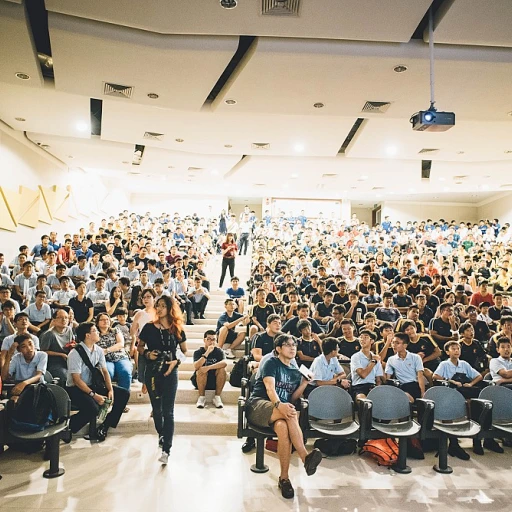
Understanding the Role of a Cardiovascular Technologist
The Essential Role in Modern Healthcare
In the intricate realm of healthcare, cardiovascular technologists play a pivotal role. Their primary responsibility lies in diagnosing and treating heart and blood vessel conditions through advanced, enhancing skills in vital procedures. Whether operating high-tech invasive cardiovascular equipment or assisting in cardiac catheterization labs, these professionals are indispensable in delivering patient care.
Through a comprehensive cardiovascular technology program, students will gain on-the-ground experience in clinical settings. These programs cover a variety of topics, from the basics of cardiovascular technology to specific invasive procedures. Earning an associate degree includes rigorous courses and credit hours designed to meet health education requirements.
Building Technical Expertise
Moreover, the role of cardiovascular technologist is not limited to technical operation. It necessitates a thorough understanding of cardiac anatomy and pathophysiology. Many programs offer a blend of theoretical learning and practical application to create well-rounded professionals. Often, an associate degree is the foundational requirement for entering this field, which is complemented by advanced credentialing exams, such as the RCIS exam administered by the cardiovascular credentialing international body.
Becoming a registered cardiovascular invasive specialist involves dedication and commitment. The journey for students begins with enrolling in specialized courses that focus on invasive cardiovascular techniques. As they gain experience, the career progression can lead to more advanced roles within allied health, showcasing the dynamic options available in this exciting career path.
The Importance of Upskilling in Healthcare
The Path to Skill Enhancement in Healthcare
In the rapidly evolving world of healthcare, the demand for qualified professionals who excel in specialized fields like cardiovascular technology is ever-growing. Upskilling becomes a fundamental step for anyone looking to thrive in this dynamic environment. Understanding the essence of continual learning stands at the core of professional growth in this sector. The technological innovations in invasive cardiovascular procedures, such as cardiac catheterization, require technologists to stay at the forefront of the latest methods and tools. With advancements like these, students embarking on a career as an invasive specialist or cardiovascular technologist must be equipped with the appropriate skills. It isn’t just about meeting the basic requirements and obtaining an associate degree. Upskilling involves a commitment to refining competencies and expanding knowledge. Programs offering education in cardiovascular technology often incorporate a comprehensive blend of clinical practice and theoretical courses, enabling students to accrue the necessary credit hours for advancement. Students will benefit from enrolling in accredited programs that connect theoretical education directly to clinical experiences. These programs should align with the cardiovascular credentialing expectations set by organizations like the Credentialing International (CCI). Whether you're targeting to become a registered cardiovascular invasive specialist or a technologist, these education avenues are pivotal. Moreover, upskilling supports career progression. Many students and professionals pursue the RCIS exam, aiming to gain recognition as a specialist RCIS. This credential not only enhances professional credibility but also opens doors to more advanced positions within the allied health sector. Balancing the demands of rigorous programs while working can be challenging. Yet, the commitment to enhance your skills with targeted training, such as lymphatic drainage massage training, underscores the holistic approach needed to excel in health tech roles. Ultimately, the importance of upskilling in healthcare should not be underestimated. As a career progresses, continuous education and practical experience form the bedrock of expertise. Those with the foresight to invest in their skills today are the ones who will shape the future of cardiovascular technologies and services tomorrow.Choosing the Right Cardiovascular Technologist Program
Navigating the Educational Journey
Embarking on the path to becoming a cardiovascular technologist is an exciting journey, and it begins with choosing the ideal educational program. Aspiring students will encounter a variety of cardiovascular technology programs, each designed to cater to specific career goals and professional requirements. When considering a cardiovascular technologist program, prospective students should assess their own career aspirations, and what type of specialization aligns with their interests. Courses focusing on invasive cardiovascular procedures, such as cardiac catheterization, might appeal to those interested in becoming an invasive specialist. Programs will often lead to an associate degree or a certification, which are essential for those aiming to start their careers in cardiovascular health. An essential aspect of any cardiovascular technology program is the balance of classroom education and clinical experience. Students need to engage with both theoretical knowledge and practical skills to excel in their future roles. Rich clinical experiences, often included as core courses, provide invaluable hands-on learning. These opportunities allow students to work alongside skilled cardiovascular technologists and observe real-world applications of the technology program's curriculum. For those considering a career in this field, investigating the program specifics, such as required credit hours and coursework, is crucial. Prospective students should ensure that the program meets all credit and course requirements set by national credentialing bodies, such as the Cardiovascular Credentialing International (CCI). Successfully completing recognized programs allows graduates to sit for mandatory credentialing exams like the specialist RCIS exam, which opens doors to advanced career opportunities. Upskilling is a continuous journey, especially in the dynamic field of healthcare. As health education progresses, professionals must stay ahead of technological advancements and changing industry standards. Exploring Mastery in Thought Leadership can further help individuals refine their career trajectories and excel in the realm of cardiovascular technology.Overcoming Challenges in Upskilling
Facing the Hurdles in Upskilling
Embarking on the journey to become a cardiovascular technologist is both exciting and challenging. As you navigate the path of upskilling, it’s important to recognize and overcome the obstacles that may arise. Here’s how you can tackle some common challenges:
- Time Management: Balancing the demands of a cardiovascular technology program with work and personal commitments can be daunting. Students often find it helpful to create a structured schedule that allocates specific time blocks for study, clinical practice, and personal activities. This ensures that all aspects of life receive the attention they need.
- Financial Constraints: Pursuing an associate degree or any health education often comes with financial burdens. Exploring scholarships, grants, and financial aid options can alleviate some of these pressures. Many programs also offer flexible payment plans to accommodate students' financial situations.
- Adapting to New Technology: The field of cardiovascular technology is constantly evolving, with new invasive techniques and equipment being introduced. Staying updated with the latest advancements is crucial. Engaging in continuous learning through workshops, webinars, and additional courses can help students stay ahead in their career.
- Meeting Program Requirements: Each cardiovascular technologist program has specific credit and clinical requirements. Understanding these early on and planning accordingly can prevent last-minute stress. It’s beneficial to regularly consult with academic advisors to ensure you’re on track.
- Credentialing and Certification: Achieving the status of a registered cardiovascular invasive specialist (RCIS) involves passing the RCIS exam, which can be a significant hurdle. Preparing for this requires dedication and access to the right resources. Joining study groups and utilizing practice exams can enhance your readiness.
Despite these challenges, the rewards of a career in cardiovascular technology are substantial. With determination and the right strategies, students will find themselves well-prepared to meet the demands of this dynamic field.
Career Opportunities and Advancement
Exploring Career Opportunities and Moving Up the Ladder
As you step into the professional realm as a cardiovascular technologist, a world of career opportunities opens before you. From working in hospitals to specialized cardiac centers, the demand for skilled professionals in cardiovascular technology continues to rise. The Bureau of Labor Statistics projects a steady growth rate in this field, which signifies not only job stability but also numerous pathways for career advancement. For those entering the field, obtaining an associate degree in cardiovascular technology is a fundamental starting point. However, the journey doesn't have to end there. Opportunities abound for those who wish to delve deeper into specialized areas, such as invasive cardiovascular technology. Becoming an invasive specialist allows you to focus on procedures like cardiac catheterization, offering expertise that is highly valued within allied health. Moreover, furthering education through programs that offer advanced courses and clinical exposure can significantly broaden your horizons. For instance, cardiovascular technologists who pursue additional credit hours towards a bachelor's degree or even higher education might find themselves qualifying for leadership roles or administrative positions. Such roles not only offer increased responsibilities but also better financial rewards. Credentialing plays another critical role in your career trajectory. Obtaining a specialist registered cardiovascular invasive specialist (RCIS) credential from an international cardiovascular credentialing body like the Cardiovascular Credentialing International (CCI) can highlight your expertise and distinguish you in the job market. The requirements for taking the RCIS exam include a thorough understanding of both the theoretical and practical components of cardiovascular invasive procedures, often necessitating ongoing education to stay current with technological advancements. In conclusion, the key to climbing the career ladder as a cardiovascular technologist lies in continuous upskilling and education. This field, characterized by a dynamic technology program and shifting health needs, demands professionals who are both skilled and adaptable. As you embark on this path, staying informed about health education advancements and being proactive in your professional development will ensure that your career continues to flourish.Balancing Work, Study, and Personal Life
Navigating Life's Balancing Act
For cardiovascular technologists keen on advancing their careers, balancing work, studies, and personal commitments can be challenging yet rewarding. With programs often demanding significant time and dedication, it's crucial to deliver efficient balancing strategies. One of the primary challenges is meeting the rigorous credit requirements for a cardiovascular technology program. The associate degree, for example, entails substantial coursework, covering invasive cardiovascular procedures, clinical education, and health education. For students aiming towards specialization, such as becoming a specialist in invasive cardiovascular technology, the integration of education must be seamless into their daily lives. Here's a concise approach to strike that balance:- Set a Schedule: Planning is imperative. Block out specific hours for studying, clinical practice, and personal time. Prioritize according to your daily and weekly goals, ensuring all career and program-related requirements are met.
- Leverage Support Systems: Engage with fellow students pursuing similar paths. Whether through study groups or discussing challenges, connecting with peers can provide much-needed insights and encouragement.
- Mindful Time Management: Break tasks into manageable portions. If a class, such as cardiac catheterization, requires deep focus, allocate shorter, consistent study sessions rather than cramming.
- Health as a Priority: Maintain your physical and mental health. A well-rested mind is more capable of processing intensive learning, especially in a demanding field like invasive cardiovascular technology.













